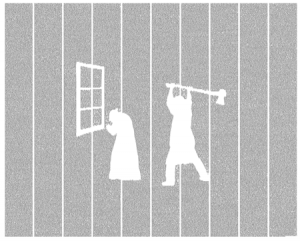
The publication of Crime and Punishment in 1866 was a watershed moment in the history of nineteenth-century Russian literature. Dostoevsky’s novel perennially hovers near the top of lists of “Best Books of All Time.” Harold Bloom summed up the work’s enduring mastery and appeal, observing that, “Crime and Punishment remains the best of all murder stories, a century and a third after its publication. We have to read it — though it is harrowing — because, like Shakespeare, it alters our consciousness.” In the twenty first century, media and technology advances have transformed the reading experience and the ways readers relate to texts. Most students in literature classrooms are now digital natives, many reading on e-devices, some even on smart phones. In the age of the “spoiler alert” our reading experience seems to have changed beyond all recognition, yet in some ways the possibilities of new reading communities opened up by social media allow us to replicate the kinds of institutional communities which arose around nineteenth-century Russian periodicals. Rethinking the ways in which we contextualize, teach, and interpret Dostoevsky’s novel will help make it more accessible to a new generation of readers.
“Crime and Punishment at 150” will take place October 21-22, 2016 at the University of British Columbia, and will celebrate the novel’s sesquicentenary by bringing together teachers, scholars, students, translators, artists, and readers to discuss Dostoevsky in the digital age. The conference will include a keynote by Carol Apollonio, a screening of the new film Crime and Punishment (Apocalypse Films, 2015) with post-film discussion with its director, Andrew O’Keefe, and a video conference with a linked Crime and Punishment panel at the University of Bristol, among other events. Confirmed participants include Brian Armstrong, Elena Baraban, Alexander Burry, Deborah Martinsen, Louise McReynolds, Robin Feuer Miller, Megan Swift, and William Mills Todd, III.
We invite abstracts of 300 words on topics related to Crime and Punishment in the classroom or digital humanities/new media approaches to Crime and Punishment. Possible topics include:
- reading Dostoevsky with students in 2016
- digital humanities-based research on Dostoevsky and/or Crime and Punishment
- digital or new media approaches to the novel in the classroom
- new approaches to teaching an old book
- public engagement initiatives (book club readings, online readings, Twitter projects)
- teaching the novel in different contexts (a survey course, a Dostoevsky course, across disciplines)
- the challenges and successes of teaching the novel in the context of decreasing enrolments and increasing departmental pressures
We also encourage students to submit abstracts and we plan to feature several panels showcasing undergraduate and graduate student research. We welcome 300 word abstracts for papers on Crime and Punishment from undergraduate and graduate students, particularly those that explore new ways of reading the novel through the lens of new media or against the backdrop of contemporary issues and experiences.
Please submit abstracts with a 1 page cv to candpat150@gmail.com by May 15, 2016.
For more details, please visit our web space: https://blogs.ubc.ca/cp150. We will post information there as it becomes available. Please direct any questions to candpat150@gmail.com.
This event is co-organized by Katherine Bowers and Kate Holland, and supported by the Department of Central, Eastern, and Northern European Studies (UBC), Green College (UBC), the North American Dostoevsky Society, and the Social Sciences and Humanities Research Council of Canada.